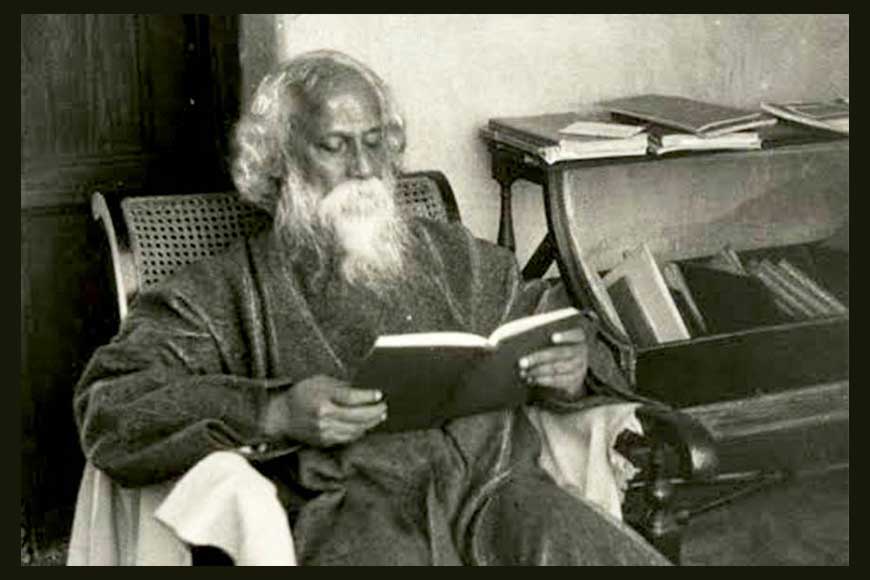Rabindranath Tagore’s Writings Reveal his Philosophy on Libraries – GetBengal story

The idea of a library is extensively explored in two writings by Tagore, the first of which was written at the early age of 24 and published in Bichitra Prabandha, and the second of which was written for his presidential speech at the All-India Library Congress in December 1928, when Gurudev was 67 years old.
Libraries are the keepers of centuries of knowledge.. Hence, they are places of supreme importance, and Tagore knew that.
He writes: “A library can be thought of as a ‘Tower of Silence’ like a sleeping child, which embodies the entrapped vibrations of an age-old ocean. Here language is still, like a calm mass of water that has stopped flowing. Man’s unbound enlightenment, shackled with words, is imprisoned in the papers in black and white. If all these sublime aspirations of the quest of the human mind suddenly find expression, if the rebellious words fly in all directions, it will be akin to a torrent from the melted ice of the Himalayas. The library encloses within itself this very deluge of the ardent expressions of human souls.”
Inside a library, we often feel that we are at the crossroads of a labyrinth leading us to knowledge in every direction. The emancipation of humankind is hidden within the walls of a library.
Tagore addresses the treasure trove of a library at a time when India was a British colony and in the throes of a silent revolution.
“Every day we receive innumerable missives from far and wide, encompassing the past and the future. Should we be reduced to merely copying these letters and publishing them in English newspapers? Should the names of my countrymen only adorn the second page of the application forms? Should we subject ourselves to the subservient position of fighting litigation cases over trivial matters of possessiveness? Let the library be the repository of the voice of Bengal—in consonance with the music of the world.”
While speaking at the All India Library Congress in 1928, he mentions how a library can lead to revolutions and success. He says, “The success of the library is not measured by the books that occupy the shelves but by those that are variously perused daily. Often a librarian gets carried away by an impressive array of collections—he forgets to put in the thought and hard work to make the library user-friendly, the reason being, by amassing something one can easily impress the common mind.”
Most libraries carry booklists that are on routine display. But the lists are usually listless and unattractive. Tagore felt that the difference between a good and an average library is the ability of the former to extend a warm welcome to the reader. This is what we call modesty, which is the hallmark of great libraries—not in size but in character. A reader does not make a library—it is the library that makes a reader. Almost nine decades ago, Rabindranath Tagore believed that every library needed to have a personality; it couldn't only be a room filled with books.
Had he been alive today, he might have embraced modern developments of e-books and e-journals!










